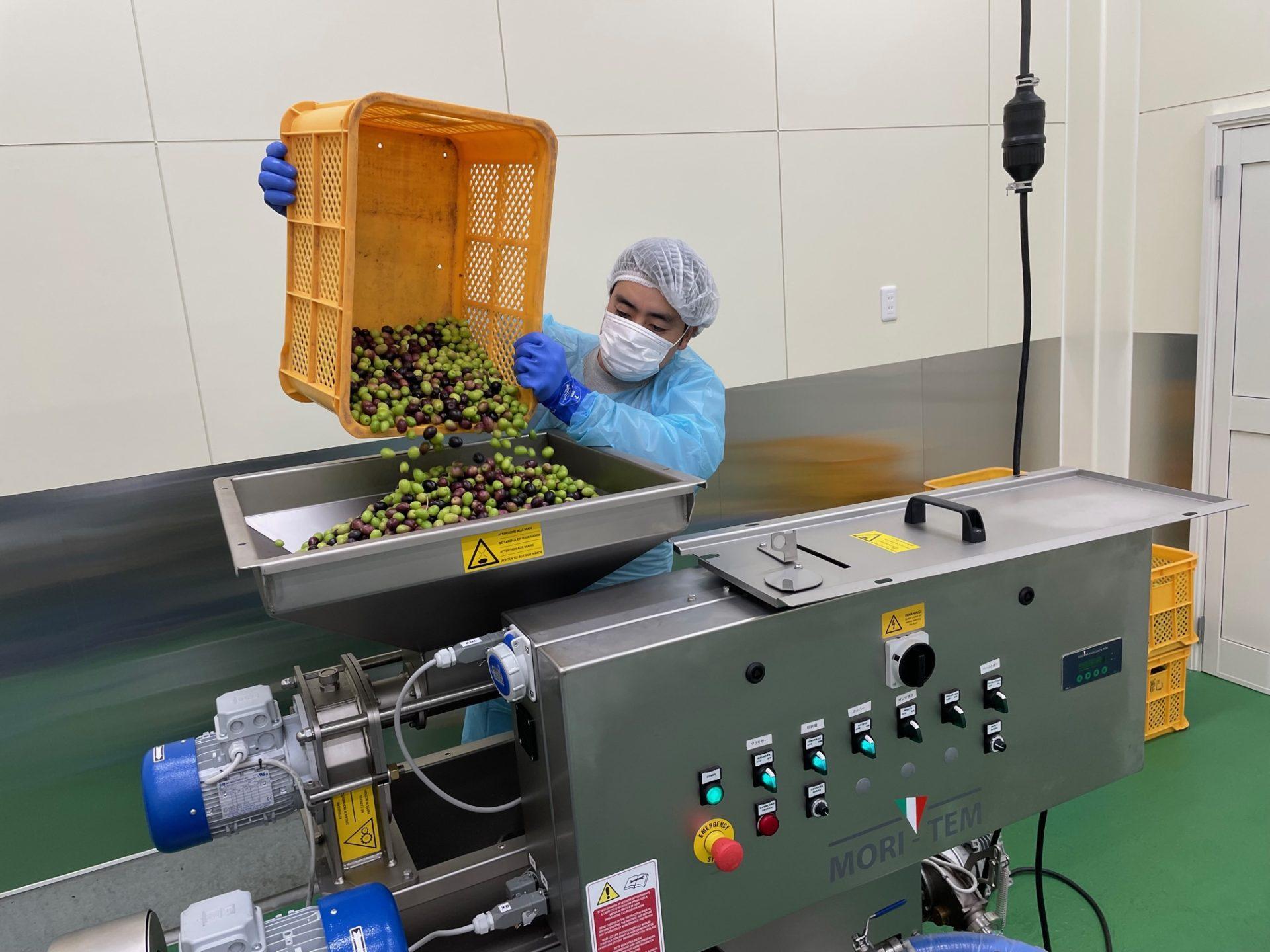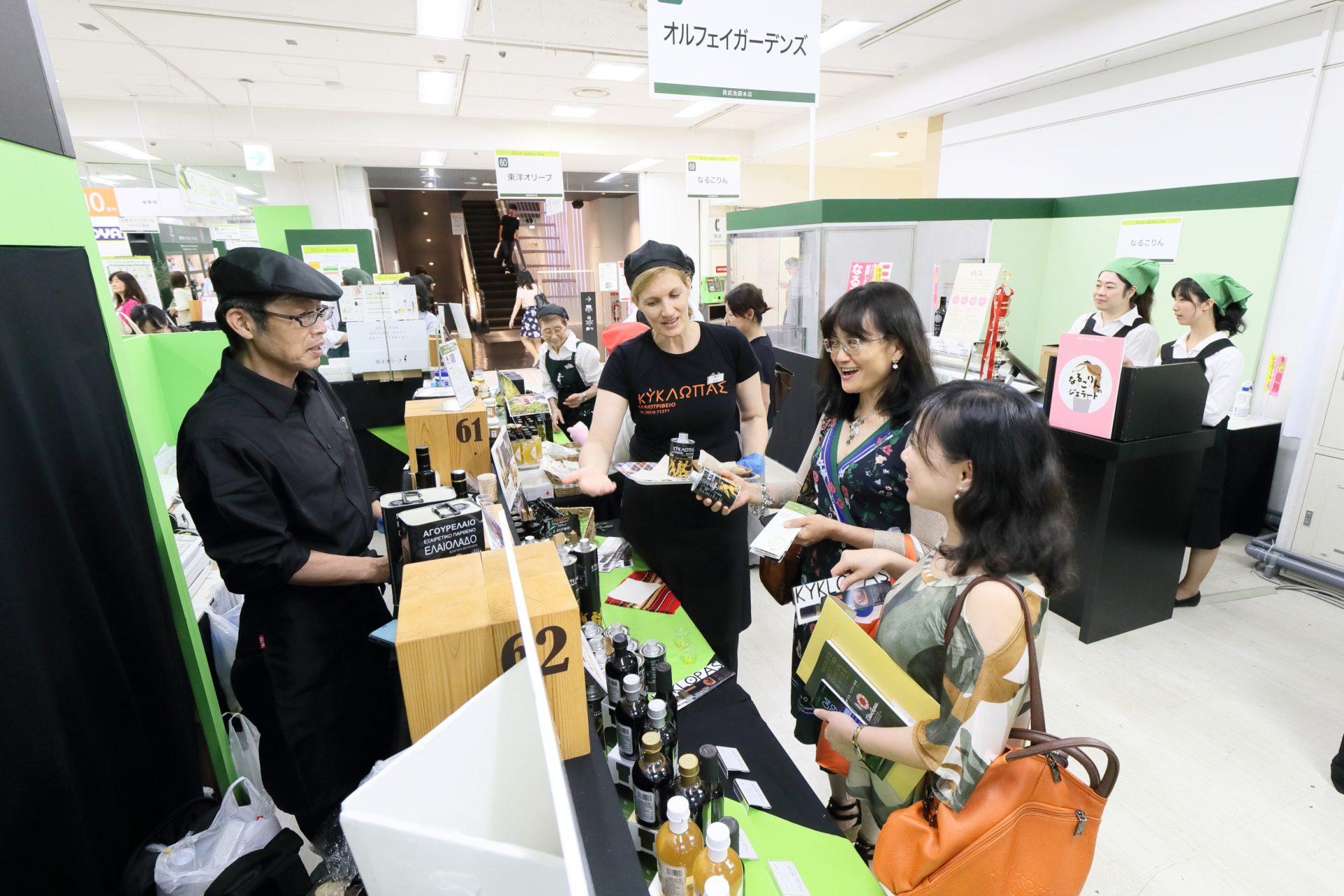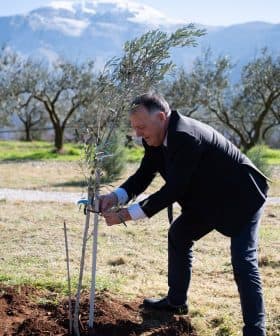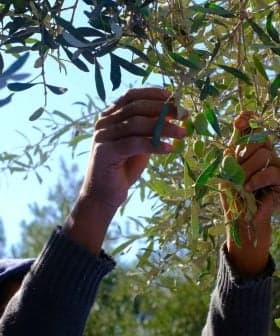Tracking the Rise of Olive Oil in Japan
The rising quantity and quality of olive oil production in Japan presents opportunities for local farmers as well as European exporters.
 (Photo: Crea Farm)
(Photo: Crea Farm)  8.1K reads
8.1K readsThe Japanese olive oil industry has seen significant growth and success, with producers embracing olive cultivation and participating in international competitions to showcase their products. Despite facing cost-related challenges, the industry is expanding beyond traditional hubs like Shodoshima Island, with emerging producers in regions like Kyushu, Kagawa, and Okayama contributing to the country’s growing olive oil production and consumption.
With a rich history that dates back to the Edo Period, which ended in 1867, the Japanese olive oil industry has witnessed remarkable growth and success, defying the unique challenges posed by the country’s environment and weather conditions.
Driven by surging demand and evolving consumption patterns, many producers in the world’s eleventh most populous country and third largest economy have embraced olive cultivation.
Rising interest in olive farming can be measured by increased entries to the world’s largest olive oil quality contest, the NYIOOC World Olive Oil Competition, and the growth of the local Olive Japan contest.
See Also:Japan May Recognize Some PDO and PGI Olive Oils from European CountriesSince 2015, the number of entries from and awards for Japanese producers at the NYIOOC has steadily increased, rising from a single entry in the third edition of the contest to 10 in 2023.
The 2023 edition of Olive Japan also served as a powerful platform for Japanese producers to showcase their olive oil to a domestic audience, further cementing their position in the global market.
“While expecting these young pioneers to concentrate on olive cultivation and processing olive oil, the cost issues should be the next obstacles after environmental control,” said Toshiya Tada, Olive Japan’s general director.
While Shodoshima Island, nestled in the idyllic Setonaikai Sea, remains the leading hub with over 30 dedicated producers contributing to more than 95 percent of the country’s total production volume, the olive oil producers in Japan have also started to explore other regions.
The Kyushu area closely follows suit with 11 prominent producers, and emerging producers have been making their mark in regions such as Kagawa and Okayama, leading to a visible diversification of production sites.
Although the estimated olive production in Japan amounts to approximately 600 tons, resulting in around 30 tons of olive oil, the presence of nearly 100 producers nationwide signifies a burgeoning interest and active participation within the industry.
Olive farms have sprouted nationwide, primarily managed by small-scale producers, including retired individuals and ambitious young pioneers driven by a passion for excellence.
Crea Farm in Shizuoka prefecture has garnered significant recognition and success among the rising Japanese olive oil industry leaders.
The farm has dedicated over 10 hectares to cultivating olive trees in the foothills of the majestic Mount Fuji, resulting in an impressive annual production of 30 tons of olives.

(Photo: Kyoto Prefecture)
Takeda Olive Farm, located in northern Kyoto Prefecture, has emerged as a notable contender despite the challenges presented by heavy snowfall during winter, showcasing their unwavering dedication with over 2 hectares of olive cultivation.
“The rough average sales price of Shodoshima-made extra virgin olive oil is over $60 per 250 milliliters, less competitive than imported Spanish premium extra virgin olive oil,” Tada said.
However, as the industry flourishes, Japanese producers face significant cost-related obstacles. The average sales price of Shodoshima-made olive oil makes it less competitive than imported Spanish olive oils.
To overcome this challenge, young pioneers and established producers are actively striving to enhance environmental control measures and implement cost-effective strategies in cultivation and processing techniques.
The growth of domestic competitions and increasing awards on the international stage represent crucial milestones for the Japanese olive oil industry, providing recognition and a major platform for promotion.
With increasing participation, refined cultivation techniques and a growing consumer base, Japan’s olive oil industry is poised to sustain its flourishing trajectory well into the future.

Promoting Japanese olive oil in Europe at the Very International Marche event
In Japan, the annual domestic production of olive oil was limited to about 45 tons in 2020, making the country reliant on imports to meet the demand of its consumers.
In 2020 alone, Japan imported about 70,000 tons of olive oil, with the European Union being the primary supplier, accounting for 96 percent of the total imports. Spain and Italy, the leading E.U. exporters, dominate the market, boasting a combined market share of about 94 percent.
Despite starting relatively low, olive oil consumption in Japan has been steadily growing, reaching approximately 0.57 kilograms per capita in 2019.
The rising trend can be attributed to the increasing popularity of Mediterranean cuisine in Japan since the early 1990s and the growing awareness of the health benefits of olive oil.
Over the past decade, extra virgin olive oil imports have more than doubled, capturing a 77 percent share of total imports in 2020.
However, due to the Covid-19 pandemic, imports experienced a temporary decline of about 4 percent that year. Despite the decline, household consumption increased as more people turned to home cooking, partially compensating for the negative impact on the food service sector.
Japan’s retail segment of the olive oil market is expected to continue its growth trajectory, presenting lucrative opportunities for European small and medium-sized enterprises (SMEs) interested in entering the Japanese market.
Share this article









